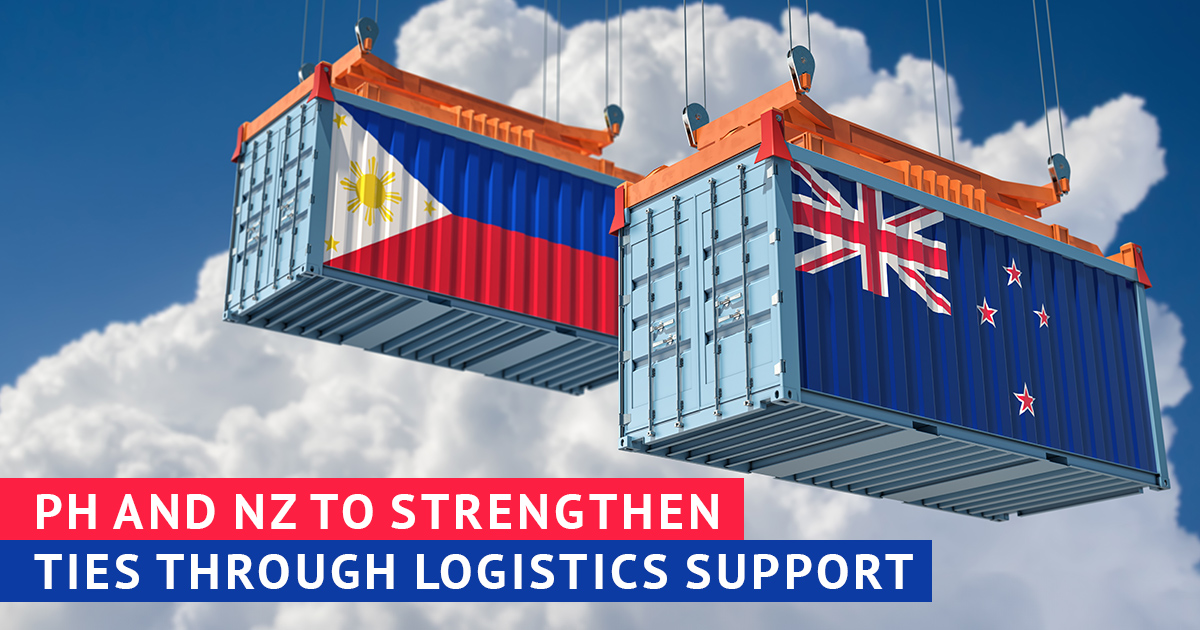
The Philippines and New Zealand are strengthening their relationship through new agreements on enhancing logistics support. Given the heightened regional climate, the two countries are aiming to finalize a framework for reciprocal assistance by year’s end and establish a cooperation agreement.
The Main Highlights
The plan was discussed during a meeting in Manila with President Ferdinand Marcos Jr. and Prime Minister Christopher Luxon on strengthening defense ties, which they particularly highlight maritime security efforts against illegal fishing and terrorism threats.
The Philippines and New Zealand set the year 2026 as a target for establishing this comprehensive partnership, which also coincides with the 60th anniversary of diplomatic relations between their nations.
Included in the main points of the partnership is to establish a substantial plan to boost bilateral trade over the next few years. Another is to improve visa facilitation for citizens traveling between the countries. These measures highlight their commitment to addressing regional security concerns while fostering closer economic cooperation.
Strengthening Bilateral Defense and Logistics Support
About Mutual Logistics Support
The Philippines and New Zealand plan to also have a mutual logistics support arrangement. The two nations intend to ink an agreement by the end of the year that will enable increased coordination in supplying logistical support for military operations. Their armed services will be able to more easily coordinate and support one another during troop deployments and cooperative exercises thanks to this arrangement.
Although the agreement’s details are still being worked out, representatives from both nations have stressed how critical it is to strengthen the logistical and operational support between their armed forces. For countries like the Philippines and New Zealand, strengthening defense alliances has grown crucial in light of the escalating worries over territorial conflicts in the South China Sea region. They hope to improve their capacity to respond to possible attacks and more successfully protect their national interests by optimizing logistical processes.
About Visiting Forces Agreement
Alongside the planned logistics support deal, the Philippines and New Zealand are also negotiating another pact focused on visiting military forces. The two countries aim to finalize an agreement that lays out clear guidelines when troops from one country operate or train on the other’s soil.
This visiting forces agreement will likely cover aspects like legal jurisdiction, rights and responsibilities of deployed personnel. Having such a framework in place allows for smoother cooperation during joint military exercises or if forces need to be temporarily stationed in either country.
Both nations view strengthening defense cooperation as an important objective, especially given the complex security environment in the Asia-Pacific region. Formal agreements that facilitate military coordination are seen as constructive steps towards ensuring regional stability.
Enhancing Maritime and Economic Cooperation
Joint Maritime Efforts
In addition to enhancing military logistics, the Philippines and New Zealand are exploring ways to boost cooperation across various fronts. A key area of focus involves joint maritime efforts to address challenges like illegal fishing operations and potential terrorist threats in regional waters. Officials have signaled plans for law enforcement agencies and civilian authorities on both sides to collaborate more closely when monitoring and patrolling territorial seas. Proponents argue such coordination is vital not just for security but also sustainable management of marine resources.
Increasing Bilateral Trade
On the economic front, the two governments have an ambitious agenda to significantly increase bilateral trade volumes over the next few years. Specific targets call for boosting two-way commerce by as much as 50% through new partnership initiatives. Business leaders see opportunities in sectors like agriculture, tourism and emerging technologies if both sides can facilitate greater market access.
Review VISA Processing
Easier movement of people between the Philippines and New Zealand is another priority as defense, maritime and trade ties deepen. Authorities are reviewing current visa policies and procedures with the goal of streamlining processes for business travelers, tourists and those visiting for professional exchanges. Advocates contend facilitating travel is a logical complement to the overall push for closer bilateral cooperation.
SEE ALSO:
